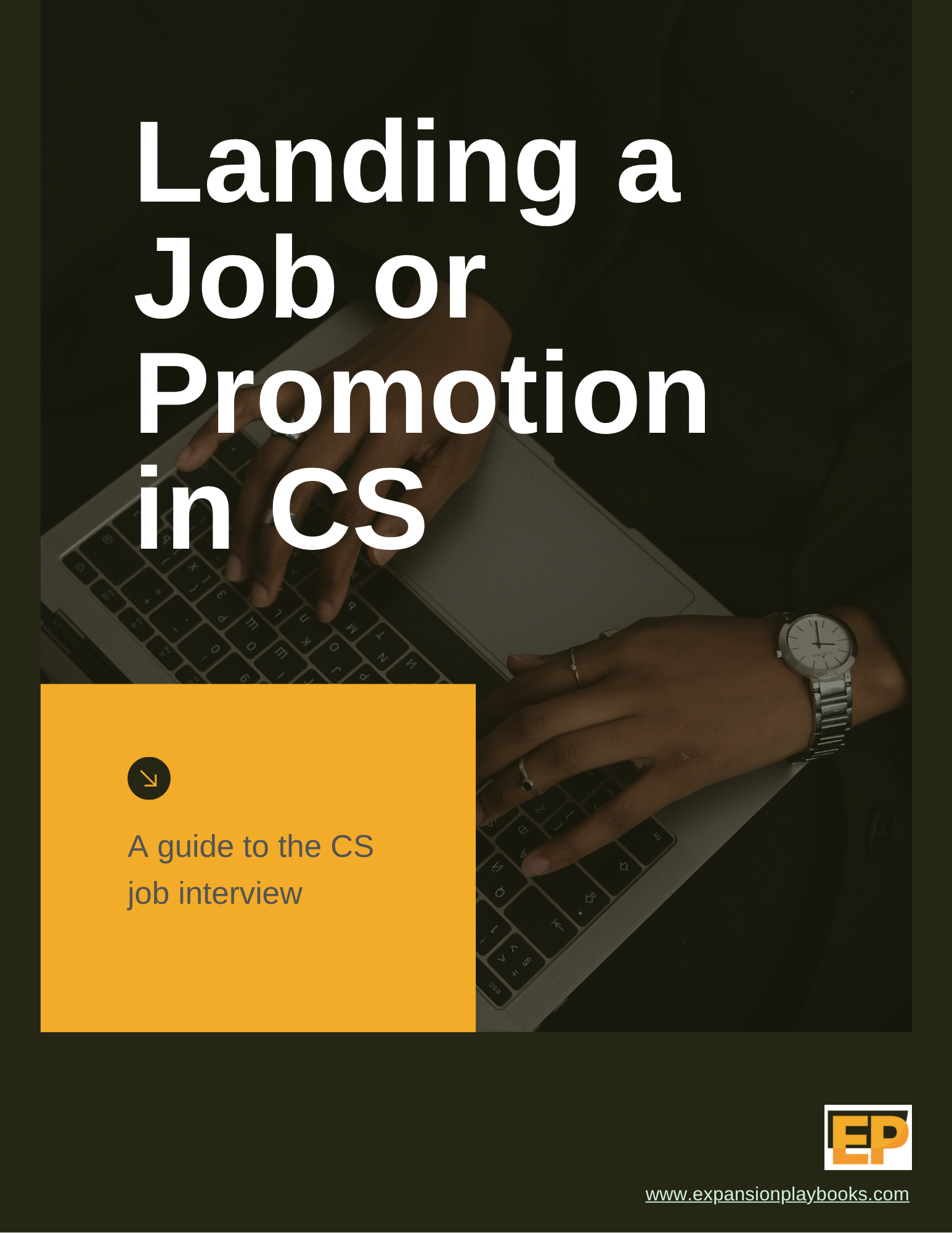Looking for a job or promotion in CS? Lead with your own Customer Success Principles
The challenge in a CS interview? Avoid blending in.
Saying something like:
“I’m great at building relationships,”
“I work hard for my customers,”
...won’t set you apart. Those are baseline expectations—table stakes. What hiring managers really want is someone who brings intention and strategy to the role. That’s where your personal CS principles come in.
What They Are—and Why They Matter
Personal CS principles are the beliefs and behaviors you actively choose to guide your work. They aren’t abstract ideals—they’re your compass for making decisions, prioritizing initiatives, and shaping customer outcomes. When shared in the right way during an interview, they show that you:
Think and own your craft. You’re not just reactive—you’ve considered how to drive impact.
Operate with purpose. You don’t wing it—you’ve designed an intentional approach to customer success.
Bring passion and care. You’ve articulated what matters to you and why—and that’s powerful.
Leaders are Values Driven
Marc Benioff, co-founder and CEO of Salesforce, says it best:
“Once you know what you want and what is important for you to achieve, also define the values associated with it. … For us, the things that were important were, No. 1, customer success. Nothing is more important to us than making sure every customer is successful in our service.”
That clarity of personal and organizational principle—that elevates you from being “just another candidate” to someone who knows how to carve a career in CS.
How to Craft Your CS Principles
Here’s a simple structure to start:
Reflect on what inspires you.
What have you observed in effective CS professionals?
What values do you want your future team to quote?
Write them down—around 5–10 aspirational yet realistic guiding principles.
Order them by importance.
If you're new to CS? Steal/adapt from leaders you admire.
Talk about why those resonate with you and how you’d apply them.
Example principle (from our guide):
“Customer results > customer satisfaction.”
This signals you're focused on impact—not just feel-good metrics.
How This Plays Out in an Interview (and Beyond)
When asked why you're interested in Customer Success, you could say:
“One of my guiding principles is that customer results matter more than customer satisfaction—because satisfaction is fleeting, but results build long-term retention and expansion.”
That statement tells a story: You’ve thought deeply, you prioritize outcomes, and you’ll bring that mindset to the role. It’s authentic, strategic, and powerful.
And these principles aren’t just props for your resume: once you're in the job, they become your north star—for decision-making, prioritizing tasks, and consistently delivering value.
Get the free ebook!
💡 Want the full set of strategies?
This is just one of the 4 Pillars we teach in our Landing a Job in Customer Success guide. Download it for free and learn how to:
Communicate your principles with impact
Showcase your CS “assets”
Craft compelling success stories
Ask the questions that impress hiring managers

